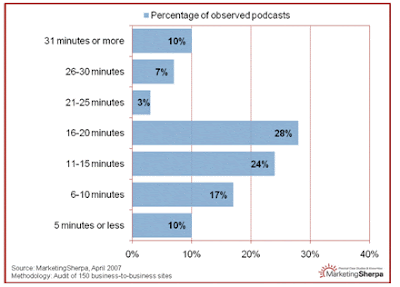For those who missed our recent webinar and are suffering serious withdrawal as a result, rescue is at hand... Here's where you can find the recording: http://www.glance.net/custom/Webinars/PeterCohan_20080711/Webinar.html.
Many thanks to Glance Networks, who hosted the event.
Tips, thoughts, tools, techniques and practices to increase success rates with software demonstrations
Sunday, July 20, 2008
Monday, July 7, 2008
Terrific Discovery/Qualification Question
Here is a truly terrific question to ask in a Discovery or Qualification session: “Is there anything I should be asking that I haven’t yet asked?”
This is best done at the end of a Discovery discussion or Qualification session. It has the wonderful effect of causing your customer to pause and think, critically. Often your customer will come up with something that is important, which you both missed previously in your discussion.
Try it!
This is best done at the end of a Discovery discussion or Qualification session. It has the wonderful effect of causing your customer to pause and think, critically. Often your customer will come up with something that is important, which you both missed previously in your discussion.
Try it!
Tuesday, July 1, 2008
Podcast Length – Reflective of Demos, Similarly?
A recent study of podcast length by MarketingSherpa (http://www.marketingsherpa.com/) provides some interesting insights for demos.

The length of podcasts sampled from 150 business-to-business sites vary from short (5 minutes or less) to long (31 minutes or more). MarketingSherpa draws four conclusions:
“#1: Content Determines Length
Content should dictate everything else – including length. The ‘best practice’ seems to be short podcasts – 10 minutes or less, but we found that most podcasts are longer with some very successful outliers. It might be helpful to follow the format of radio news broadcasts. You can get your message across in a few minutes; an ‘in-depth’ story is usually 5 to 7 minutes long.
#2: Focus on Single Topic
One reason many good podcasts are short is that they focus on a single, discrete topic. It’s not the only way to approach production, but it’s probably a good idea especially when starting out. Potential listeners eyeing podcast titles generally will give a new provider a whirl if the topic of the podcast is very specific.
#3: Stress Content, Not Production
Perfect sound and music and good product values will not make or break your podcast –the quality of the content will do that. Low-fidelity user-generated content has inured us to poor sound quality, and inexpensive software can smooth out the sound and get rid of all those distracting “ums.”
#4: Webinars: a Good Model
Look at your existing catalog of recorded webinars when you want to get started – you can often break them down into podcasts, almost slide by slide. Think of a webinar as a string of discrete podcasts in the making.”
Sounds very much like advice for a Great Demo!
Sounds very much like advice for a Great Demo!
Subscribe to:
Comments (Atom)